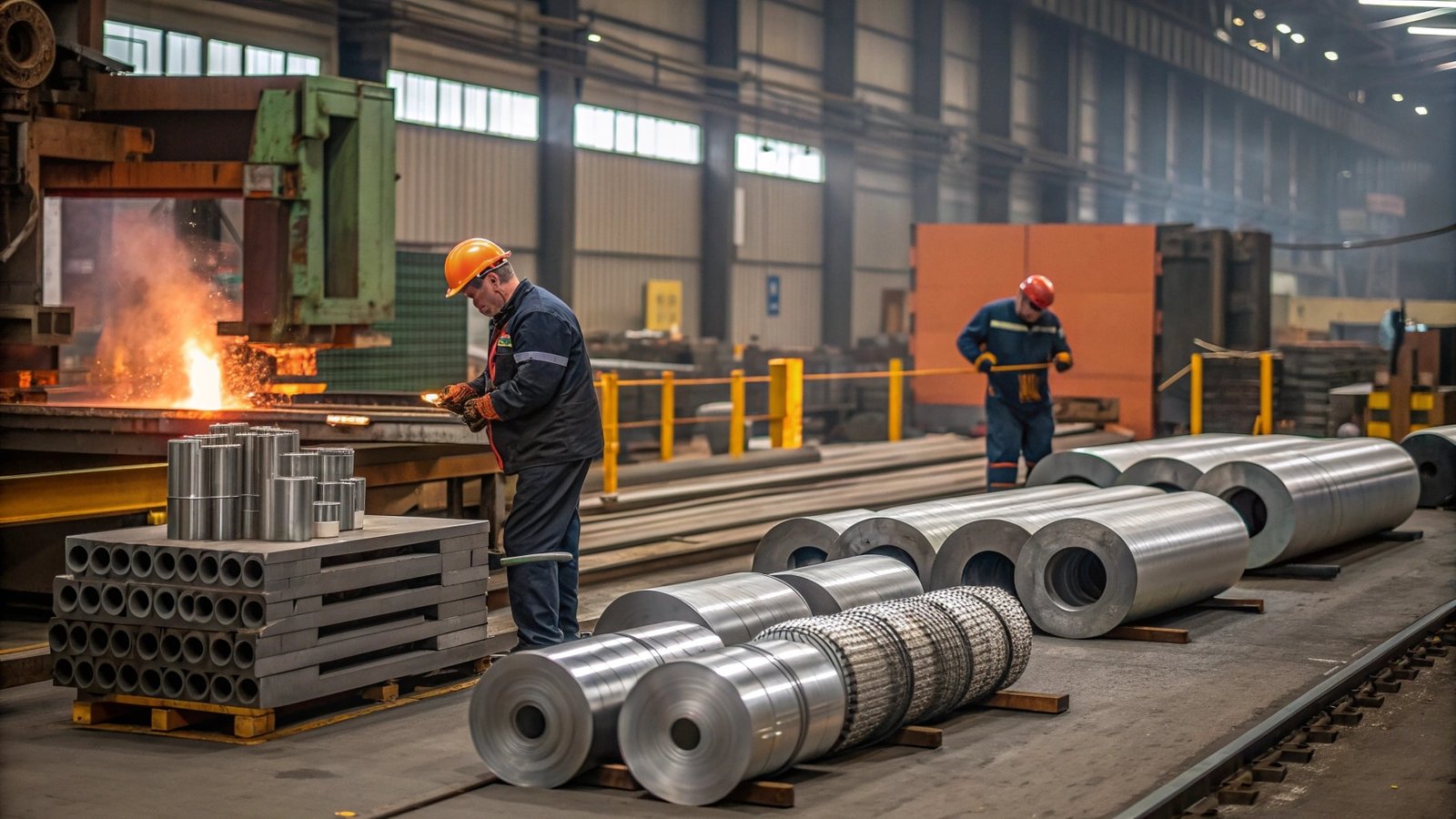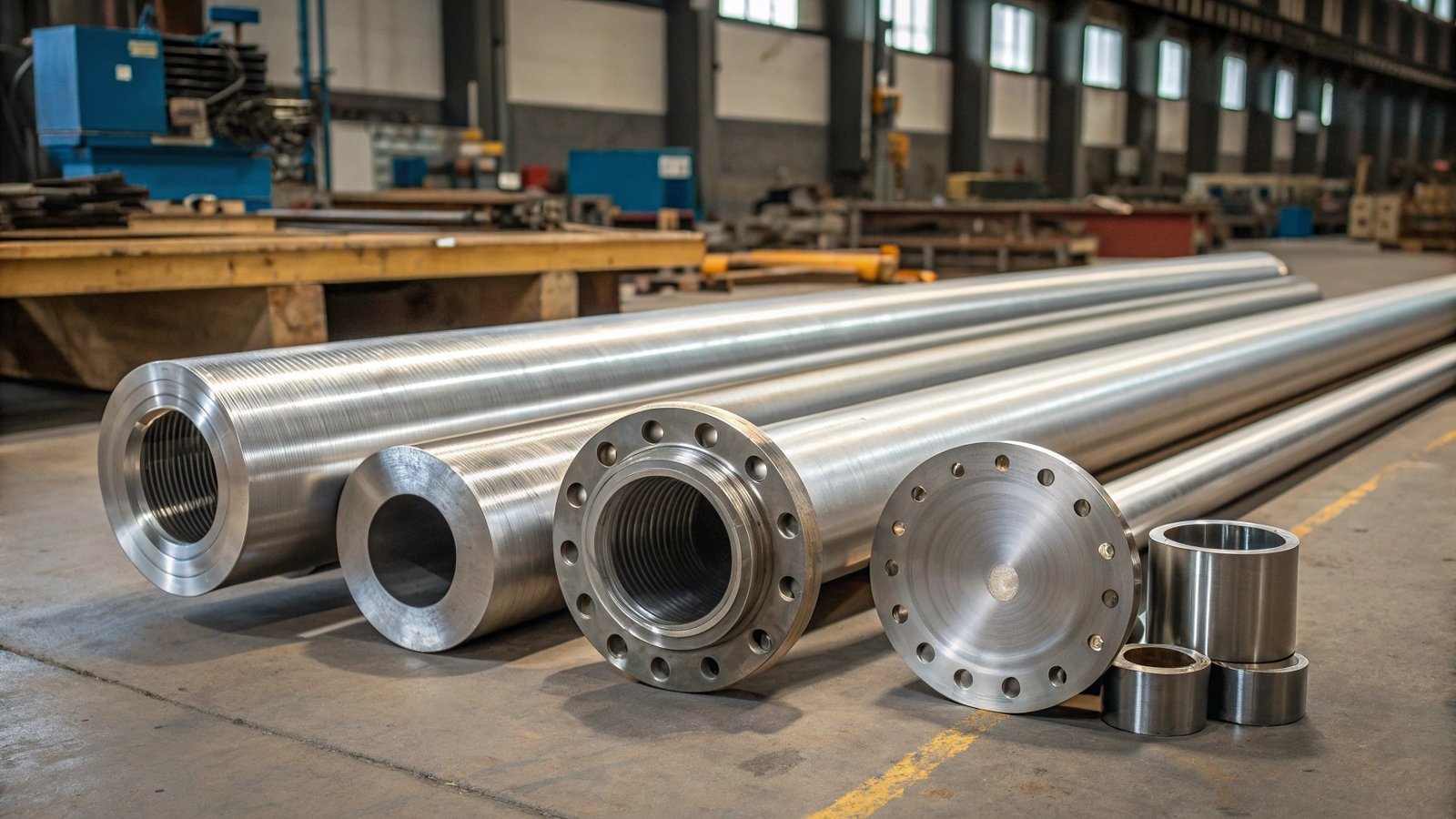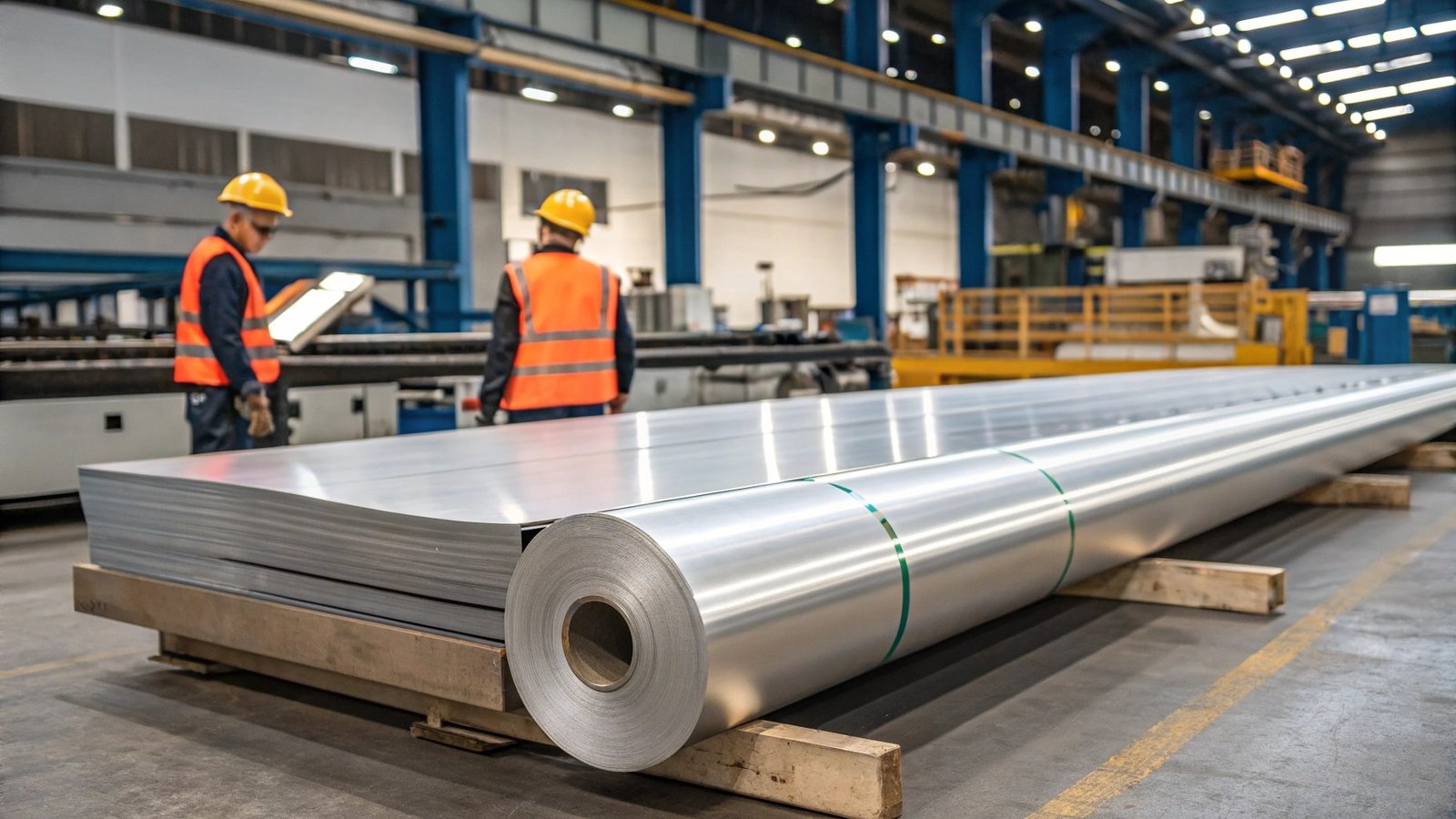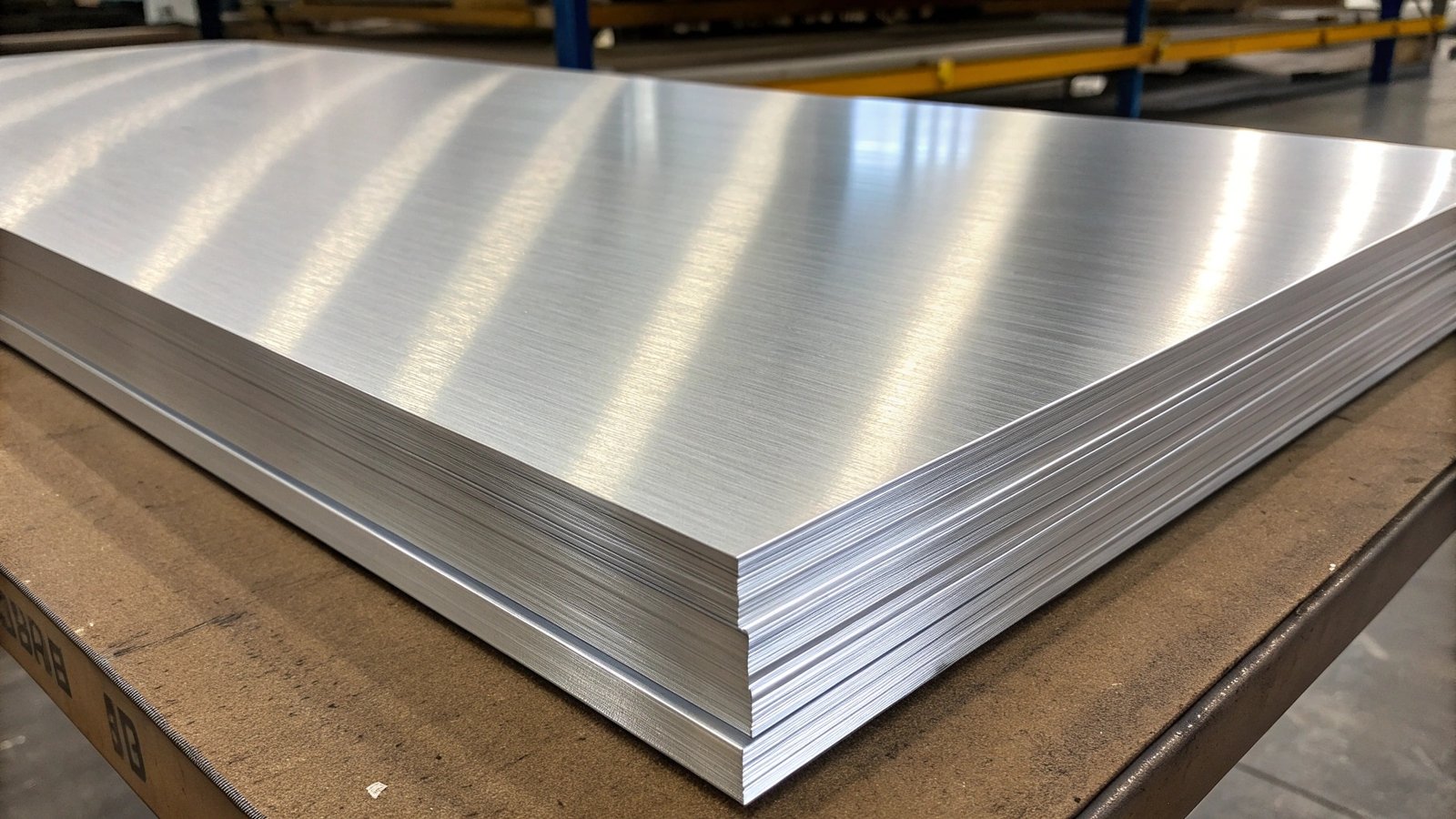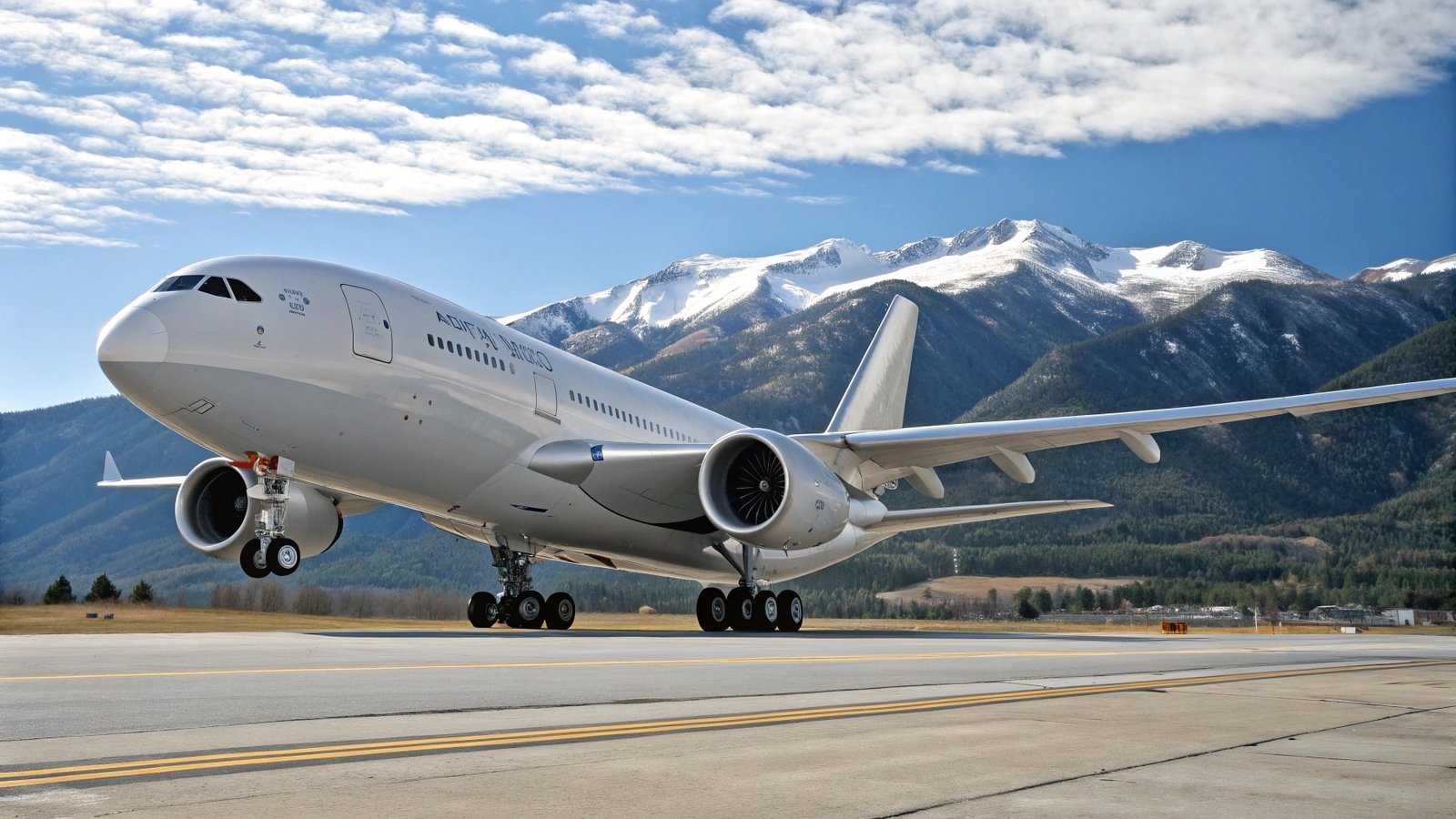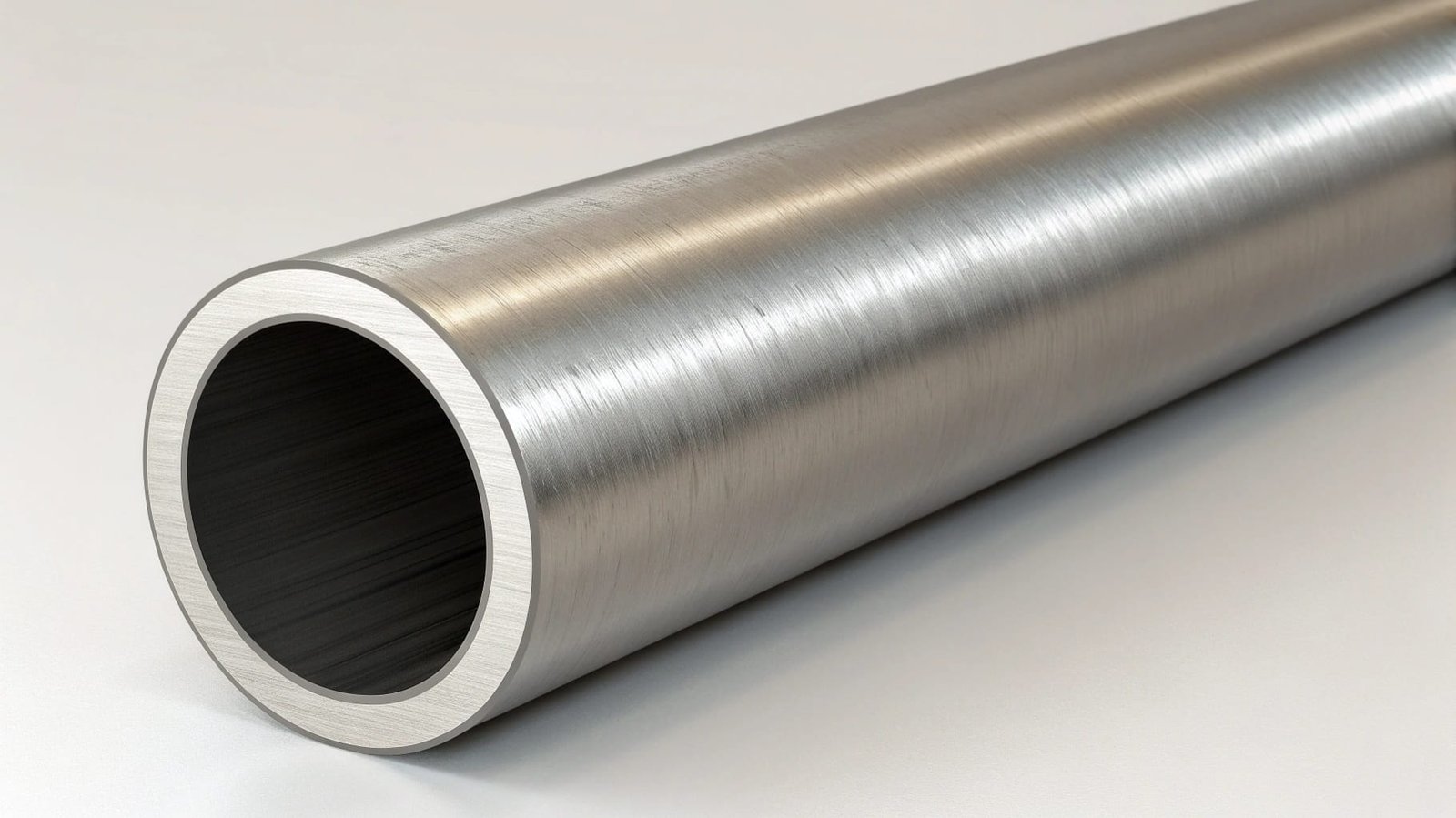You need very strong aluminum for your important project. Choosing the wrong type can lead to big problems. Your parts might break or not perform as expected.
The strongest aluminum alloy that is commonly used is 7075. It offers incredible strength, close to some steels. This makes it ideal for parts that face high stress and heavy loads.
Transition Paragraph:
Here at SWA Forging, we live by our slogan: "Master Southwest Aluminum Right." We specialize in making large-diameter forged aluminum rings and discs. So, understanding the strength of different aluminum alloys is core to what we do. Our customers, whether they are traders looking for reliable stock or machining plant sourcing managers needing specific performance, count on us for this knowledge. Let's explore what makes an aluminum alloy truly strong.
Is 6061 Or 7075 Aluminum Stronger?
Your project demands strong aluminum, and you're weighing 6061 against 7075. Making the less suitable choice could mean component failure and costly delays.
7075 aluminum is significantly stronger than 6061 aluminum. 7075 is a top choice for high-stress aerospace and performance applications, while 6061 is a versatile, good all-around alloy.
Dive deeper Paragraph:
When engineers and designers talk about the "strength" of a metal, they often look at a couple of key numbers. These are tensile strength (how much pulling force it can take before breaking) and yield strength (how much force before it permanently deforms).
Let's compare 7075-T6 (a common heat-treated state) with 6061-T6.
- 7075-T6: This alloy boasts a typical tensile strength of around 570 MPa (megapascals), which is roughly 83,000 psi (pounds per square inch). Its yield strength is also very impressive, typically around 500 MPa (73,000 psi).
- 6061-T6: This alloy has a typical tensile strength of about 310 MPa (45,000 psi) and a yield strength of about 276 MPa (40,000 psi).
As you can see, 7075-T6 is nearly twice as strong as 6061-T6. The main difference comes from their chemical makeup. 7075 uses zinc as its primary alloying element, along with magnesium. 6061 relies mainly on magnesium and silicon. These different additions create vastly different capabilities. I've consulted on many projects where a customer initially considered 6061 for a high-load part, but after reviewing the stress calculations, we shifted to 7075 to ensure safety and longevity. This is especially true for the large forged rings we supply for demanding industrial machinery. While 6061 is easier to weld and often more corrosion-resistant, for pure strength, 7075 wins.
| Property | 6061-T6 (Typical) | 7075-T6 (Typical) | Key Difference |
|---|---|---|---|
| Main Alloying Elements | Magnesium, Silicon | Zinc, Magnesium | Dictates strength and other properties. |
| Tensile Strength | ~310 MPa (45,000 psi) | ~570 MPa (83,000 psi) | 7075 is much stronger. |
| Yield Strength | ~276 MPa (40,000 psi) | ~500 MPa (73,000 psi) | 7075 resists permanent bending much better. |
| Primary Use Cases | General structural, marine | Aerospace, high-stress parts | Reflects their specific advantages. |
Which Aluminum Is Stronger, 6061 Or 6082?
You're choosing between 6061 and 6082 aluminum. Their strengths appear similar, but even slight variations can impact your product's final performance.
6082 aluminum is generally slightly stronger than 6061 aluminum, particularly in certain tempers or product forms. Both are good medium-to-high strength structural alloys widely used.
Dive deeper Paragraph:
Both 6061 and 6082 belong to the 6000 series of aluminum alloys. This means their main alloying elements are magnesium and silicon, which allows them to be heat-treated for increased strength. They are often considered interchangeable for many general structural applications. However, there are subtle differences.
6082 typically contains a slightly higher percentage of manganese than 6061. This small compositional difference contributes to 6082 generally exhibiting slightly higher mechanical properties. For example, in the T6 temper, 6082-T6 might show a minimum tensile strength of 310 MPa, whereas 6061-T6 is often specified around 290 MPa. The difference isn't as dramatic as between 6061 and 7075, but it can be significant for designs that are pushing the limits of the material.
An interesting observation from my experience in the aluminum industry, especially serving clients in the Middle East, is the regional preference. While 6061 is very popular in North America, 6082 is often more prevalent in European standards and applications. Both alloys offer good corrosion resistance and weldability (though welding reduces strength in the heat-affected zone). At SWA Forging, we frequently produce large forged discs and rings from both 6061 and 6082, depending on our customer's specific project requirements or the standards they need to meet. Machining plants often appreciate 6082 for its good machining characteristics, sometimes even slightly better than 6061 for complex parts.
| Property | 6061-T6 (Typical Min) | 6082-T6 (Typical Min) | Notes |
|---|---|---|---|
| Tensile Strength | 290 MPa | 310 MPa | 6082 is slightly higher. |
| Yield Strength | 240 MPa | 260 MPa | 6082 is slightly higher. |
| Manganese Content | Lower | Higher | Key compositional difference affecting strength. |
| Common Applications | Structural, marine, general | Structural, transport, machining | Overlapping, but 6082 often for higher stress. |
What Are High Strength Aluminium Alloys?
Your application demands aluminum with exceptional strength. Many alloys exist. Identifying truly "high strength" types is crucial for your project's success.
High-strength aluminum alloys primarily refer to the 2xxx series (copper-based) and the 7xxx series (zinc-based). These can achieve strengths comparable to some steels while saving weight.
Dive deeper Paragraph:
When we talk about "high-strength" aluminum alloys, we're generally looking at materials that can achieve very impressive tensile and yield strengths after specific heat treatments. These are the go-to choices when structural integrity under significant load is paramount.
The 2xxx series alloys have copper as their main alloying element. Familiar names include 2014, 2024, and 2219. These alloys are known for their excellent strength, especially their ability to maintain good strength at somewhat elevated temperatures compared to other aluminum series. They also possess good toughness and fatigue resistance, making them suitable for components subjected to cyclic loading. Aerospace structures, such as aircraft fuselages and wings, often utilize 2xxx alloys. However, they generally have lower corrosion resistance than 5xxx or 6xxx series alloys and can be more challenging to weld. I recall a project for a client who needed forged rings from a 2xxx series alloy for a specialized high-performance internal combustion engine component; the strength at operating temperature was the deciding factor.
The 7xxx series alloys use zinc as their principal alloying element, often combined with magnesium and sometimes copper. Alloys like 7050, 7068, and the very well-known 7075 fall into this category. These represent the pinnacle of aluminum alloy strength. For instance, 7075-T6 can exceed 570 MPa in tensile strength, and specialized alloys like 7068 can go even higher. Their exceptional strength-to-weight ratio makes them indispensable for aircraft structures, high-performance sporting equipment, and critical defense applications. One consideration with some 7xxx alloys is their susceptibility to stress corrosion cracking (SCC) if not carefully selected and designed for. At SWA Forging, our expertise in producing large-diameter forged components from these high-strength alloys ensures that the material's internal structure is optimized, which can enhance properties like toughness and fatigue resistance. This is vital for our customers in demanding industries.
| Alloy Series | Primary Alloying Element | Key Characteristics | Common Alloys | Typical Applications |
|---|---|---|---|---|
| 2xxx | Copper (Cu) | Good strength, good elevated temp. strength | 2014, 2024, 2219 | Aerospace structures, engine components |
| 7xxx | Zinc (Zn) | Highest strength, good fatigue resistance | 7050, 7068, 7075 | Aerospace, high-stress structures, defense |
What Is The Best Aluminum Alloy?
You're searching for the "best" aluminum alloy. This is a frequent question. But the real answer is: it depends entirely on your specific application.
There isn't one single "best" aluminum alloy. The optimal choice varies based on what you need: strength, workability, corrosion resistance, cost, or a combination of these.
Dive deeper Paragraph:
"What is the best aluminum alloy?" This is a question I encounter regularly from clients, especially traders looking for versatile options or machining plant managers new to a specific application. The simple answer is: there's no universal "best." The ideal alloy is the one that best meets the unique demands of your project.
If maximum strength is your top priority, then a 7xxx series alloy like 7075 or 7068 in a T6 temper would likely be the "best." These are phenomenal for lightweighting applications where high loads are expected, such as in aerospace or competitive motorsports.
However, if your component will be exposed to a harsh, corrosive environment, like seawater, then an alloy from the 5xxx series, such as 5083 or 5052, would be far "better." These alloys offer excellent corrosion resistance, even if their absolute strength isn't as high as the 7xxx series.
Perhaps you need good weldability and formability along with decent all-around strength at a reasonable cost. In this scenario, 6061-T6 is often considered one of the "best" choices due to its excellent balance of properties. It's a true workhorse in many industries.
If the primary requirement is intricate extrudability and a good surface finish for architectural applications, then 6063 might be the "best."
At SWA Forging, part of our mission is knowledge sharing. We help our customers "Master Southwest Aluminum Right" by guiding them through these choices. For a trader, the "best" might be an alloy with broad market appeal and consistent demand. For a sourcing manager at a machining plant, the "best" is defined by detailed technical specifications for a custom part. I've worked with clients needing large forged rings where toughness was paramount, and others needing forged discs where specific electrical conductivity was key. The "best" is always the alloy that fulfills all critical performance criteria for the intended use, within the project's budget. We ensure our product quality certificates reflect the exact alloy and temper supplied, giving our customers complete confidence.
Conclusion
While 7075 is often the strongest, the "best" aluminum alloy truly depends on your specific project needs. SWA Forging helps you choose the right one.


